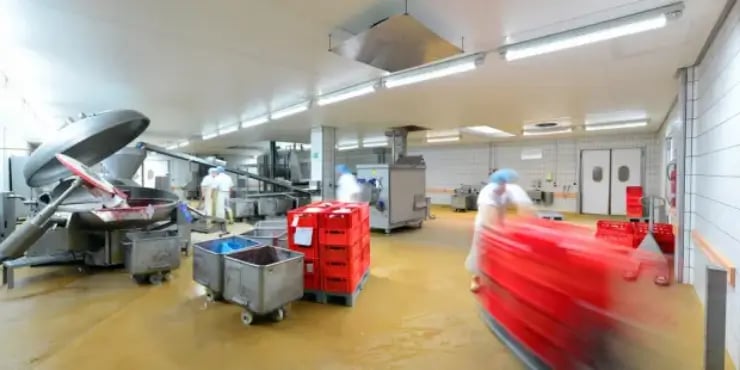Everyone agrees that food should not be wasted. Given its huge environmental footprints and the ethical concerns, wastage of animal-based products is an even bigger concern. Food wastage is often considered a global, consumer-oriented, and even political issue. The elimination of wastage is a crucial topic on the factory floor, too. One particular approach to analyse and visualise the consequences of wastage is material flow cost accounting (MFCA) as Hannah Ritchie describes in “Material Flow Cost Accounting: Resource Efficiency Made Simple”.
This contribution highlight the interwovenness of food wastage and material flow cost accounting by presenting a simple example from food industries that was part of the authors’ collaboration on exploring environmental management accounting concepts at the Thai-based multinational company Charoen Pokphand Food PLC (CPF). The company is a product sustainability leader in the South-East Asian region with more than hundred verified product carbon footprints. It produces all types of animal-based food products and operates the whole value chain from feed mills to ready-meal products and shops. You can find further information on the company on their website and in their sustainability report (http://www.cpfworldwide.com/en/sustainability).
One product of CPF is sliced ham. The ingredients are cooked and then sliced automatically using slicing and packaging machinery as depicted in Figure 1. Looking into the slicing device with a newly loaded batch of ham (Figure 2) lead to two observations: There is some space not filled by ham (marked with yellow arrows) and a small part of the ham gets wasted due to the brackets (red arrow). Using MFCA thinking, these small rejects that occur at every batch are a loss of production value. A certain portion of raw and auxiliary materials was purchased just to end up as waste. Same is true for energy and other process inputs in previous production steps. An obvious option to reduce the loss is to use the whole given space. The ratio of reject to product would come down. Why it had not been done in the first place. The reason is shown in Figure 3. The devices of cooking the ham had a certain length that defines the size of the batches. Changing the cooking devices to a more suitable length required investment. Based on MFCA results, this investment was considered as profitable and realized in due course.






